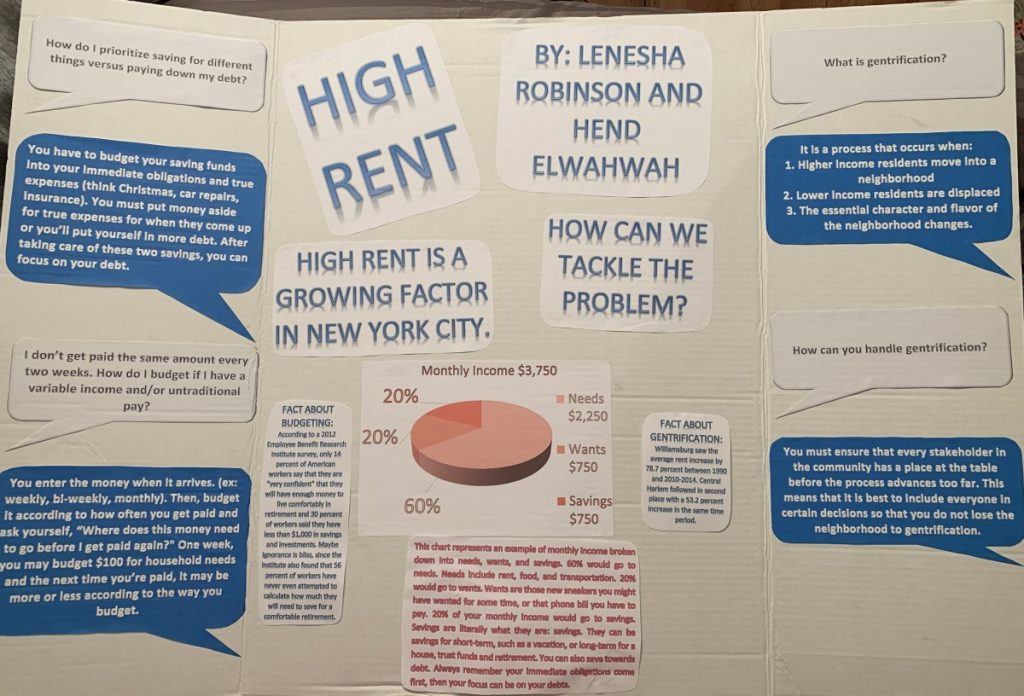My group and I will be presenting high rent as our topic of discussion for community problems. It is a known fact that New York City’s rent is extremely high. Rent throughout the 5 boroughs generally fluctuates, but the average price for a one bedroom in NYC is typically $2000. Each one of my group members researched different aspects of high rent, such as gentrification or where all of this extra money we pay for rent is even going. I researched ways young adults can budget their money to afford the high rented apartments in NYC. However, budgeting isn’t as easy as it seems.
According to my research, one way to budget your money as someone finding it hard to live in NYC is the 50-20-30 rule. The 50-20-3o rule is a budgeting tool designed to help people budget their weekly, bi-weekly, monthly etc income. 50% of your income goes to your needs, which is considered to be your rent, transportation and food. 20% goes to your savings. So this category includes your student loans, debts, 401k, IRA payments, and general savings. The remaining 30% would go to your wants. This can be new shoes, your phone bill, etc.
However, this might not be ideal for a young adult from the ages of 20 to 26. However, this may vary because everyone’s lives is different. 20% isn’t nearly enough to put into savings with NYC and its high living expenses. Also, it might be hard to save even 20% with the extreme rent prices. According to my article, people generally recommend saving 10% to 15% to put away that extra money for the rent. As I previously stated, this might not work for everyone.
For this reason, I believe the 50-20-30 rule should be 60-20-20 for people living in NYC, especially young adults. I think it is a good idea to balance your savings and spendings on wants. Overall, I think the 50-20-30 rule is a great template to budget your money. This would be a great way to help young adults or anyone with troubling rent prices in New York City.




